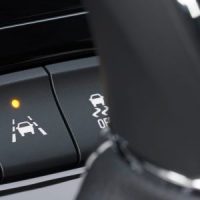Improved Auto Accident Avoidance Systems Can Prevent Collisions

In recent years, auto accident prevention technologies, like automatic emergency braking and forward-collision warning systems have drastically reduced the risk of collisions across the U.S. While they can help prevent a wide variety of accidents, they are perhaps most effective in reducing the risk of rear-end collisions. In fact, the Insurance Institute for Highway Safety (IIHS) estimates that forward-collision warning systems can lower the chances of a motorist being involved in a rear-end accident by 22 percent. Unfortunately, these systems are not infallible, leaving many road users at risk of suffering an injury in a car accident caused by someone else’s negligence. In these cases, injured parties can seek reimbursement from the at-fault party who caused their crash.
Forward-Collision Warning Systems
Forward-collision warnings systems are one of the most effective accident prevention technologies in use by vehicle manufacturers. These systems use sensors, cameras, and radar to monitor the road and detect potential collisions by:
- Providing drivers with more time to react and avoid an impending crash; and
- Detecting objects and vehicles in a driver’s blind spot.
Importantly, these systems remain effective and reliable even when visibility is poor. Basically, forward-collision warning systems can help mitigate driver error by providing advance notice of a potential danger.
Crash Avoidance Technology Has Limitations
Unfortunately, driving a car with collision-avoidance technology doesn’t guarantee that a motorist won’t be involved in a crash. One such limitation is that these systems often issue warnings for situations that end up being non-emergencies, so drivers can become desensitized to the system’s warnings. Many drivers also become overly reliant on these systems, putting their faith in software rather than their own experience, skill, and judgment. That’s why it’s so important to use this kind of technology to complement safe driving habits and not to replace them. It’s also important to notice that not all collision avoidance systems are equally effective. Forward-collision warning systems, for instance, while extremely effective at lowering the risk of rear-end collisions, aren’t as successful when it comes to stopping t-bone crashes and pedestrian accidents.
Liability for Car Accidents in Georgia
In Georgia, accident victims who can prove that someone else was the cause of their crash could recover compensation for their losses, including reimbursement for medical bills, lost wages, vehicle damage, and pain and suffering. In order to obtain this recovery, however, a claimant will need to provide proof of driver error. This can be achieved by presenting eyewitness testimony, video recordings of the crash, photographs from the accident scene, and even data from the in-vehicle technologies themselves.
Experienced Atlanta Car Accident Lawyers
At Shiver Hamilton Campbell, we are only too aware of the kinds of devastation that being involved in a serious car accident can have on a family. That’s why our team of experienced Atlanta car accident attorneys and skilled support staff work so hard to help accident victims seek their rightful compensation after being involved in serious collisions. Unfortunately, pursuing this type of recovery can be complicated, as insurers and at-fault parties are rarely willing to pay out claims without a fight. This is where having a dedicated attorney on your side can make all the difference to the outcome of a legal claim. To learn more, please reach out to our legal team by calling our office at 404-593-0020 today.
Sources:
iihs.org/topics/bibliography/ref/2111#:~:text
nhtsa.gov/vehicle-safety/driver-assistance-technologies


